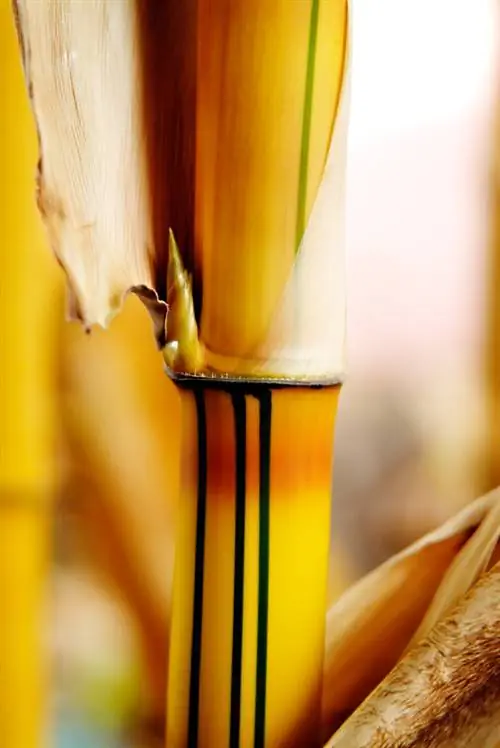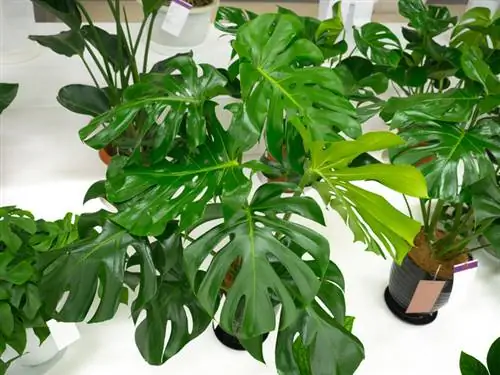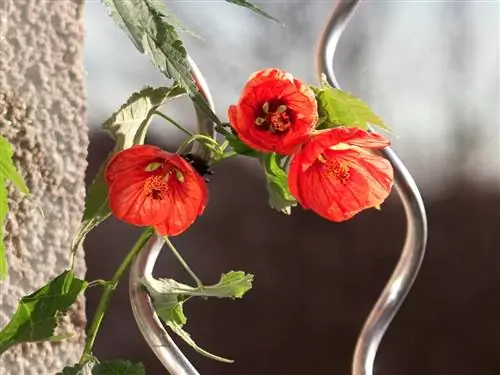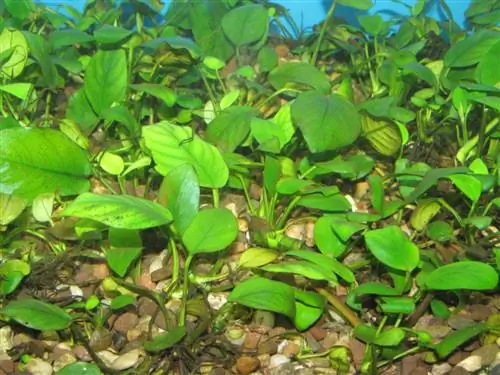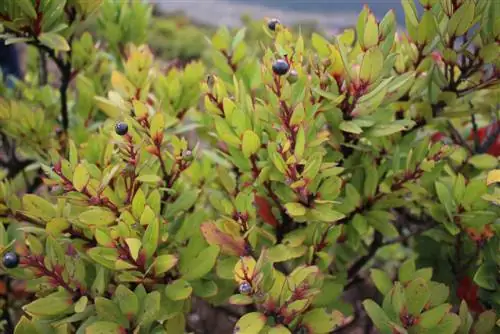- Author admin leonars@hobbygardeners.com.
- Public 2023-12-16 16:46.
- Last modified 2025-01-23 11:20.
Gentian is quite easy to propagate. There are several methods you can use to grow new perennials for the rock garden or container on the patio. What to look for when growing new gentian plants.

How can gentian be propagated successfully?
Gentian can be propagated by sowing, dividing the perennial or cuttings. As a cold germinator, sowing in autumn is recommended. Autumn or spring are suitable times for division and propagation from cuttings.
The different methods to propagate gentian
- Sowing
- Share perennials
- Cut cuttings
Like all perennials, gentian can be propagated by division or cuttings. The easiest way is to propagate by seeds.
Let gentian sow itself or grow it from seeds
Gentian sows itself when seed capsules are allowed to ripen in the faded flowers. If you want to sow gentian yourself, you must not cut the flowers.
Once the seed pods are ripe, they open and scatter the seed. If you leave the perennial to its own devices, you don't have to worry about offspring.
To obtain seeds for sowing in pots, cut off the ripe seed pods and place them in a plastic bag. By shaking and tapping, the capsules open and release the seeds.
Gentian is a cold germinator
In order for the seed to germinate, it needs very cool temperatures for a while to overcome the inhibition of germination.
So sow the seeds in autumn either directly outdoors or in a prepared pot with garden soil. The seed is only lightly covered and kept moist but not wet.
After emergence you have to separate the plants. Once they are large enough, plant them in the desired location.
New gentian plants through division
Get the gentian out of the ground in autumn or spring. Divide the perennial with a spade, leaving enough leaves and roots on both sides.
Then replant the resulting new perennials.
Use cuttings for propagation
Cut cuttings after flowering. Remove the lower leaves and plant the shoots in well-drained garden soil.
It is better to plant a few cuttings too many, as not all shoots will take root.
Tips & Tricks
Neither the seed nor the other parts of the gentian plant contain toxins. Only bitter substances can be found, especially in the roots. But they are not dangerous for humans.


